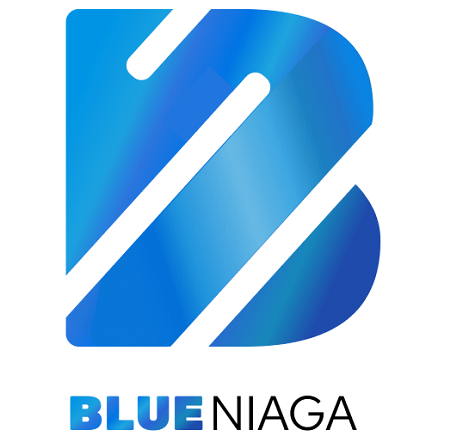Hey there! Have you noticed how much more captivating websites have become lately? It’s all thanks to some amazing web animation libraries that are really stepping up the game in 2025. These libraries not only make websites look great but also play a crucial role in enhancing user experience (UX) design.
In this blog post, we’re diving into the top web animation libraries that are transforming UX design this year. You’ll learn about how these tools can elevate user engagement, keep your audience interested, and ultimately lead to better conversion rates. Get ready to explore some innovative solutions that can help you create stunning web experiences!
The Power of Animation in UX Design
Animation is no longer just a flashy add-on; it’s a crucial aspect of modern web design that enhances usability and engagement. But why is animation so impactful?
1. Guiding Users
Animations can be used effectively to guide users through complex interfaces. For instance, a subtle button hover effect can indicate interactivity, while transitions can help users understand changes on the page. Consider these benefits:
2. Enhancing Storytelling
A well-placed animation can add narrative-like elements to your site, making it more engaging. By integrating animations, you can create a flow that keeps users engaged. Think about how a catchy animated intro can intrigue visitors!
3. Establishing Brand Identity
Your website’s animations reflect your brand’s personality. Are you a playful brand? Use colorful bouncy animations! Are you a corporate giant? Go for sleek, smooth transitions. Custom animations can make your site unforgettable.
Top Web Animation Libraries of 2025
Now that we’ve highlighted the importance of animation, let’s take a closer look at the top libraries that are making waves this year.
1. GSAP (GreenSock Animation Platform)
GSAP continues to be a frontrunner in the animation arena. With its high performance and unmatched compatibility across devices, it has become a favorite among developers.
Why Choose GSAP?
GSAP’s powerful capabilities enable complex animations like staggered lists and timelines, which can significantly improve the storytelling aspect of your website.
2. Lottie by Airbnb
Lottie brings vector animations directly into your web or mobile projects using JSON. This powerful tool has become extremely popular due to its lightweight nature and high-quality output.
Benefits of Using Lottie:
Using Lottie animations can instantly lift your design, giving it a modern, sophisticated touch.
3. Anime.js
This lightweight animation library is perfect for those looking for flexibility without sacrificing performance. Its modular nature allows developers to customize animations based on their specific needs.
Key Features of Anime.js:
With such versatility, Anime.js can help create interactive experiences that captivate users.
4. ScrollReveal
As the name suggests, ScrollReveal is all about making animations that happen when users scroll through your website. This library adds an element of surprise and delight as users explore your content.
Why Use ScrollReveal?
Integrating ScrollReveal into your website can make static content come alive, adding dynamism to scrolling actions.
5. Three.js
For those looking to incorporate 3D elements into web design, Three.js is the go-to library. It allows developers to create stunning 3D animations easily.
Three.js Offers:
Using Three.js can lead to immersive experiences that keep users exploring your site for longer.
How to Choose the Right Animation Library
With so many options at your disposal, choosing the right animation library for your project can feel overwhelming. Here are some key factors to consider:
1. Project Requirements
Assess what kind of animations will best suit your design. Do you need simple transitions, or are you looking for complex interactions?
2. Performance
Opt for libraries that won’t slow down your website. Test animations for performance on various devices to ensure a smooth experience for all users.
3. Learning Curve
Evaluate how comfortable you are with coding. Some libraries are beginner-friendly and offer extensive tutorials, while others may require advanced knowledge.
4. Browser Compatibility
Ensure the animations run smoothly across all browsers. Libraries like GSAP are well-established in compatibility, making them a reliable choice.
Best Practices for Using Animations
While animations can enhance user experience, they can also detract from it if overused. Here are some best practices to keep in mind:
1. Use Animation to Enhance, Not Distract
Animations should complement the user experience, not overpower it. Keep them subtle, and use them to highlight important elements.
2. Maintain Brand Consistency
Ensure that your animations align with your brand’s tone and visual identity. Consistent use of colors, styles, and themes will create a cohesive experience.
3. Prioritize Loading Speeds
Animations shouldn’t hinder performance. Optimize assets and code to maintain fast loading speeds, as slow websites deter users.
4. Iterate Based on Feedback
Gather user feedback on your animations. Are they engaging or confusing? Use this information to tweak and improve your designs.
The Future of Animation in Web Design
As we look ahead, the role of animation in web design will only continue to grow. Here are a couple of trends to keep an eye on:
1. AI-Driven Animations
The integration of AI may lead to more personalized animations, adapting to user behavior in real-time to create individualized experiences.
2. Enhanced Micro-Interactions
Micro-interactions will be more sophisticated, providing users with meaningful feedback and interactions as they navigate through your site.
As we embrace these trends, the potential for animation to enhance UX design is limitless!
Looking to enhance your web design in 2025? With so many exciting libraries at your fingertips, you have the tools to create engaging and beautiful user experiences. We can’t wait to see how you incorporate these animations into your designs!


